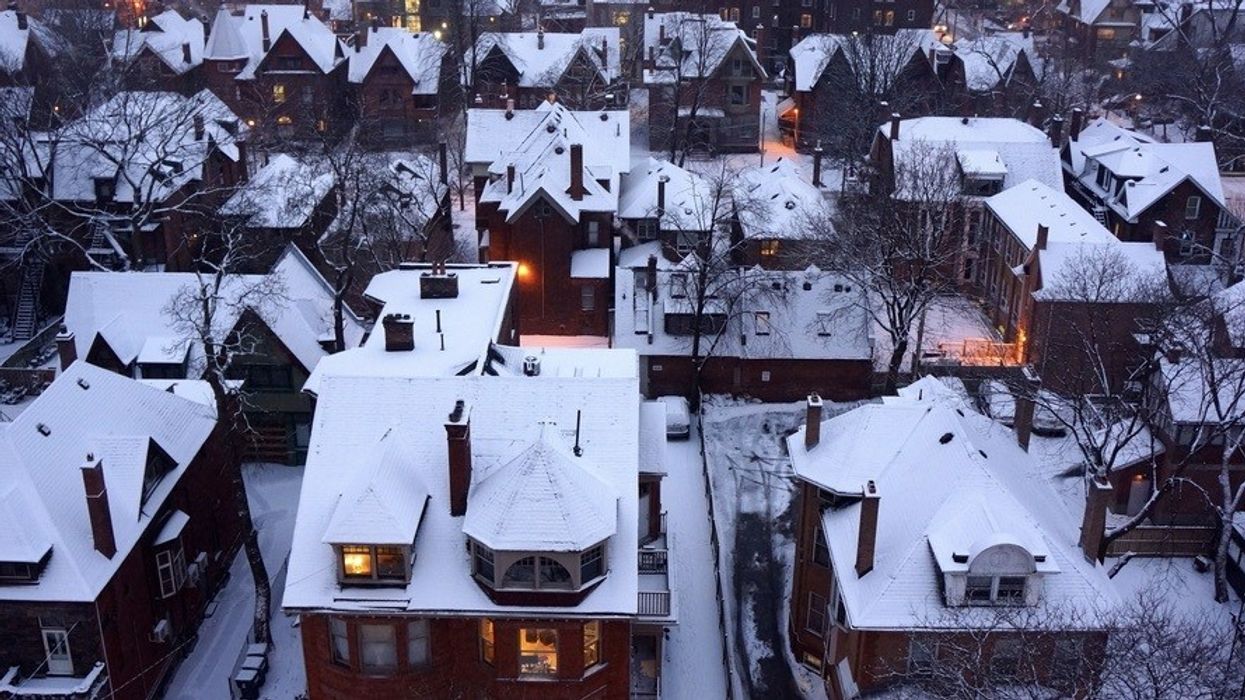Next week, the City of Toronto will be meeting next week to approve the 2021 Budget. One of the issues that will also be discussed is the potential increase to the municipal land transfer tax, a move the Toronto Regional Real Estate Board (TRREB) says could reduce the supply and affordability of Toronto homes.
Ahead of the upcoming meeting, TRREB said it has concerns about the potential tax increase as it could further constrain the supply of homes for sale in Toronto, and, thereby exacerbating housing supply and affordability challenges, especially for those purchasing modest homes.
“TRREB understands and appreciates the budgetary challenges faced by the City of Toronto, but addressing those challenges in a way that would make housing even less affordable is the wrong path forward. In fact, it is a step backward,” said Lisa Patel, TRREB President.
READ: Toronto Exploring Luxury Home Tax That Could Bring $18.7M in Revenue
TRREB’s concerns stem from deliberations by the City’s Budget Committee, which voted down an attempt to increase the municipal land transfer tax on homes priced over $2 million by an additional percentage point -- a 40% tax hike -- even though inflation in Toronto was below 1% in the Toronto CMA in 2020 and will likely approach 2% in 2021.
However, TRREB says it is possible this proposal will be tabled again at City Council when they meet to approve the Budget on Thursday, February 18.
While it may be "tempting" for the City to raise land transfer taxes on buyers of homes priced over $2 million, Patel says council should remember two things:
"First, an average priced home in Toronto last year was almost $1,000,000, and this typically represents a modest home by Toronto standards. The average price of a detached home in Toronto was almost $1.5 million in 2020,” said Patel.
“Secondly, any increase to the already high land transfer taxes in Toronto could discourage move-up buyers from listing their homes for sale, with many of these households choosing to renovate instead. This means more modest homes will not become available for those looking for more affordable options. Council should be wary of any policy move that could interrupt households’ regular progression through the housing market over time,” added Patel.
Currently, when a home buyer purchases a home priced at $2 million in Toronto, they pay a $36,475 municipal land transfer tax to the City, and another $36,475 in provincial land transfer taxes to the province. This works out to be $72,950 in up-front taxes for the buyer.
TRREB says these properties are already taxed at the highest land transfer tax level in the country (at almost 4% of the property’s value), for which they get no additional City services.
This sum could arguably equate to a fairly large renovation expenditure, which may prompt some households to renovate their existing home rather than choosing to move and make two up-front LTT payments, which could result in a further constraint on the already short supply of housing, said TRREB.
John DiMichele, TRREB CEO, says the board has repeatedly informed all levels of government that the cause of housing affordability challenges is an inadequate supply of housing.
"Council should be doing whatever it can to increase the supply of homes for sale. Adding more cost to home purchases, regardless of what the home’s price point is, will tighten the housing market even more by forcing more people to be stuck in place, instead of selling what could have been an affordable option for some home buyers," said DiMichele.
The board's CEO added that the City needs to "resist the temptation" of the short-term gain in tax revenue, and, instead, continue to promote the development of more missing middle housing.
TRREB is also cautioning council that relying on the MLTT could be risky.
“Revenues based on land transfer taxes can be volatile, especially when increasing reliance on certain segments of the housing market," said Jason Mercer, TRREB Chief Market Analyst, who added that City staff have made this point to council before in the past.
"For example, the Ontario Fair Housing Plan and the OSFI two percentage point mortgage stress test arguably played a role in the declining share of luxury home sales in 2018 and 2019 before we saw a rebound in 2020. It is possible that changes in economic growth or changes in housing policies could impact home sales in the future and therefore revenues for the City as well,” said Mercer.
Since the MLTT was introduced in 2008, TRREB says the average home price in the City has increased by approximately 140% while the MLTT collected by the City on the average priced home has increased by 340%, more than double the rate of housing price inflation in the City over that period.
TRREB's concerns come after a Toronto budget briefing note revealed the City could see an additional $18.7 million in revenue this year if council approves a proposed luxury home tax.
Currently, properties valued at more than $2 million are subject to a municipal land transfer rate of 2.5%, in addition to the aforementioned provincial fees. However, if this was bumped up another 1%, it would generate additional revenue to pay for things the City needs, such as transit and affordable housing.
According to the City, as an example, adjusting the rates 1% higher (from 2.5% to 3.5%) on property sales with a value of consideration higher than $2 million could yield an additional $18.7 million. If the threshold was set at properties worth $3 million, the city would generate an additional $6.4 million.
Council will be meeting on February 18 to finalize the 2021 Budget. If the tax increase is approved, the changes would require at least two months to implement, according to City staff.





















